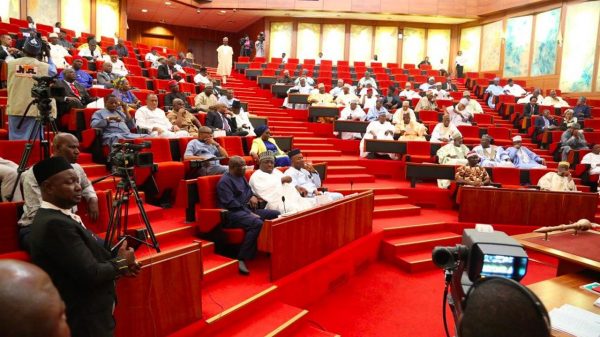Continuing from Part 1, the U.S Constitution is one of the most concise constitutional documents in the modern world. The Constitution not only provides the framework for how the federal and state governments are structured, but it also places significant limits on their powers. It also aptly makes provision for the extant life, safety and well being of the American people.
Read more about Politics
The U.S Constitution has its origins with the vision of a number of American founding fathers who not only fought for their independence from colonial Britain but also for a free society fashioned largely after Greek democracy.
The founding fathers not only developed a concise constitutional document for the American people, they also ensured it protected all vulnerable aspects of living which may culminate in the near future.
America’s Founding Fathers, namely – George Washington, Alexander Hamilton, Benjamin Franklin, John Adams, Samuel Adams, Thomas Jefferson, James Madison, John Jay – were a group of wealthy plantation owners, lawyers and businessmen. On September 9, 1776, they succeeded in uniting 13 disparate colonies earlier governed by the British imperialists, fought for their independence from Britain after the unification and also penned a series of influential governing documents that steer the country till date.
The amendments to the U.S constitution were a series of adjustments made to complement the constitution.
As of January 3, 2019, approximately 11,770 proposals to amend the Constitution have been introduced in Congress since the constitution took effect since March 4, 1789. There are also 27 amendments to the U.S constitution in total.
The first 10 amendments of the U.S constitution were adopted and ratified simultaneously and they are known collectively as the well known Bill of Rights which includes the freedom of religion, freedom of speech, freedom of the press, freedom of assembly, right to petition the government, right to keep and bear arms, prohibits unreasonable searches and seizures, the right to a jury trial, right to vote, the abolishment of slavery and so many other rights.
Sign up to the Connect Nigeria daily newsletter
Much care must be made in the process of ratifying amendments that they must be properly proposed before becoming operative as a law. This process was designed to strike a balance between the excesses of constant change and inflexibility.
The Nigerian Constitution has had so many versions being suspended by recurrent military coups. Even the current 1999 constitution is so controversial that its origin is not particularly known today.
The most valid deduction the origin of the 1999 Constitution remains that it was handed to Nigerians by the military as the 4th Republic was about to begin. It is believed that Gen. Abdulsalami Abubakar (retd) only gathered a few legal minds to draft the 1999 constitution and he set it in motion by the fiat of his powers on May 29, 1999.
No sovereign conference of the numerous people of Nigeria sat down to decide what and what they would like to see in the constitution. The sovereign national conference and the national confab that was done since then have been largely useless in making a major positive difference on the anomalies of the 1999 constitution.
Unlike the U.S where a constitutional amendment can be either triggered by a national convention called by two-thirds of the Congress or the two-thirds of the state legislatures of the 50 states, the Nigerian legislature appears largely uninterested in making constitutional amendments unless it is rammed through by pressure groups.
Even a provision for a referendum by the people of the republic would have sufficed in setting right the state of the Nigerian union. The country often experiences crisis largely because the state of Nigeria’s union is not built on solid ground. After the skirmishes that led to the Nigeria-Biafran War and the hostilities which followed after, national unity has only been held together by the shoestrings.
This brings to light the errors made by the amalgamation of Nigeria executed by Lord Frederick Lugard in 1914 wherein he just joined together unrelated parts of the country without express approval or agreement by the peoples concerned. The nation has kept on making the same mistake ever since.
For Nigeria to really work, the union of its people will have to be renegotiated just as America’s founding fathers gathered to form the United States of America.
Featured Image Source: Premium Times NG
Got a suggestion? Contact us: [email protected]


